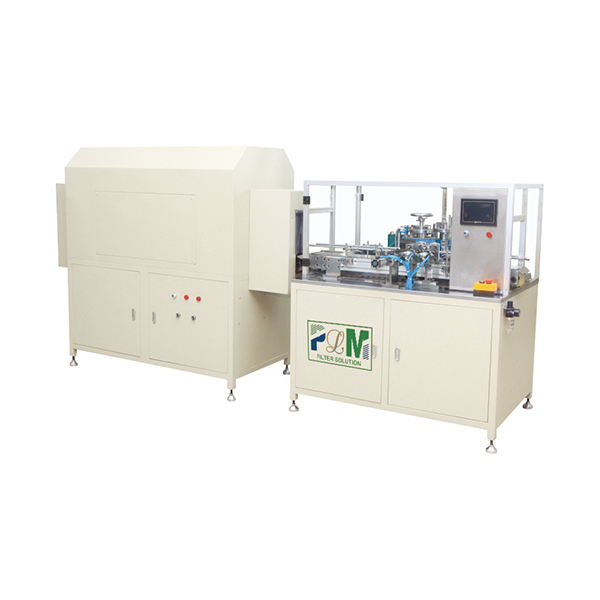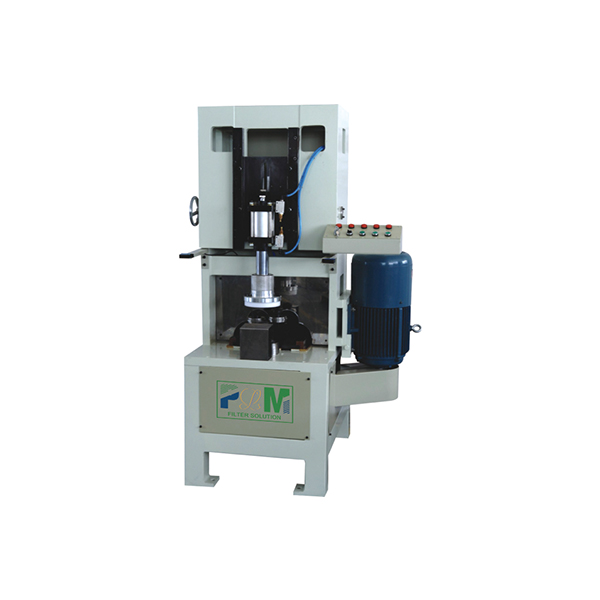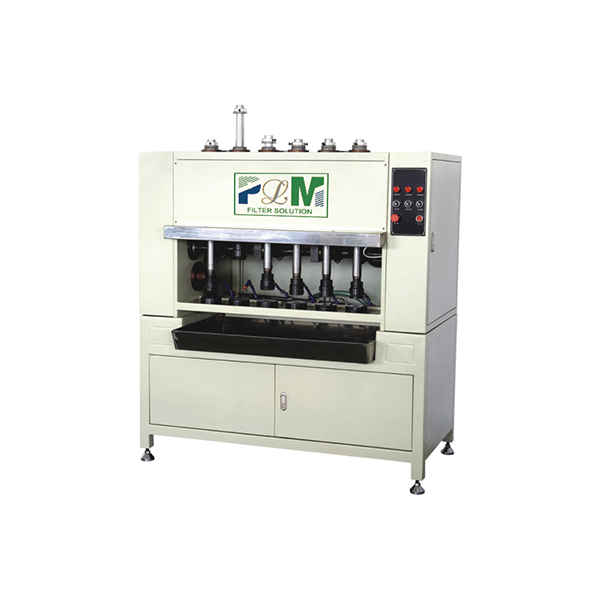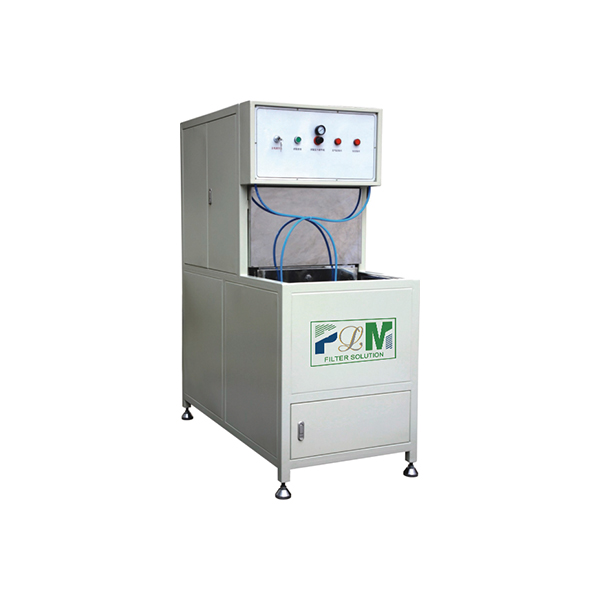Aug . 31, 2025 01:40 Back to list
PP Spun Filter Cartridge Making Machine - High Efficiency & Quality
Industry Trends in Filter Cartridge Manufacturing
The global demand for high-performance filtration solutions continues its upward trajectory, driven by stringent regulatory frameworks, increasing industrialization, and growing public awareness of water and air quality. In this dynamic landscape, the efficiency and precision of the pp spun filter cartridge making machine are paramount. Current industry trends point towards several key areas:
- Automation and Smart Manufacturing: The integration of IoT, AI, and advanced robotics is transforming filter cartridge production. Fully automated lines minimize human intervention, reduce errors, and optimize material usage, leading to significant cost savings and improved product consistency.
- Sustainability and Material Innovation: There is a strong push towards eco-friendly production methods and materials. While polypropylene (PP) remains a dominant material due to its chemical resistance and cost-effectiveness, research into biodegradable polymers and recycled PP is gaining momentum. Energy-efficient machinery also plays a crucial role in reducing the carbon footprint.
- Customization and Niche Applications: The "one-size-fits-all" approach is diminishing. Manufacturers increasingly require machines capable of producing filter cartridges with specific micron ratings, lengths, and end cap configurations to meet specialized application demands across various industries, from pharmaceutical to petrochemical.
- Enhanced Filtration Efficiency: Innovations in melt-blown technology and fiber spinning techniques are enabling the creation of filter cartridges with superior dirt-holding capacity, lower pressure drop, and extended service life. This directly translates to reduced operational costs for end-users.
- Globalization and Market Expansion: Emerging markets, particularly in Asia-Pacific and Latin America, are experiencing rapid growth in industrial and municipal water treatment, fueling demand for sophisticated filter production equipment like the pp spun filter cartridge making machine.
Relatedly, advancements in a professional air filter making machine are seeing similar trends in precision manufacturing and material science, driven by demand for cleaner air in HVAC systems and industrial processes. Simultaneously, specialized equipment such as the screw press sludge dewatering machine is becoming more integrated into comprehensive water treatment solutions, underscoring the interconnectedness of various filtration and separation technologies.
The Manufacturing Process of PP Spun Filter Cartridges
The production of polypropylene (PP) spun filter cartridges involves a sophisticated, multi-stage melt-blown extrusion process designed to create a gradient density filter media. This ensures optimal filtration efficiency, extended service life, and robust structural integrity. The core of this process lies within the advanced capabilities of the pp spun filter cartridge making machine.
Process Flow Schematic:
Step 1: Raw Material Feeding & Drying
High-grade PP granules (typically virgin polypropylene resin conforming to FDA requirements for food contact if applicable) are fed into a hopper. Prior to extrusion, the material is thoroughly dried to remove any moisture, which could otherwise lead to defects like bubbles or reduced mechanical strength in the final product. This initial phase is crucial for ensuring the integrity of the filter media.
Step 2: Melting and Extrusion
The dried PP granules are transferred to a screw extruder, where they are heated to their melting point (typically 180-230°C) and melted into a uniform, viscous liquid. The molten PP is then forced through a precision spinneret (die head) under high pressure. This critical step forms hundreds or thousands of fine continuous filaments. The engineering behind the extruder and die head is often refined through CNC machining for optimal performance.
Step 3: Fiber Drafting and Air Quenching
As the molten filaments emerge from the spinneret, they are immediately subjected to high-velocity hot air jets. This process, known as melt-blowing or fiber drafting, attenuates the fibers, reducing their diameter to micron-scale. Simultaneously, cool air (quenching air) solidifies the fine fibers. The precise control over air flow and temperature is vital for achieving the desired fiber diameter and distribution, which directly impacts the filter's micron rating and pressure drop characteristics.
Step 4: Random Laying and Thermo-Bonding
The attenuated, solidified fibers are then randomly collected onto a rotating mandrel or core. Due to residual heat and the inherent self-bonding properties of PP, the fibers spontaneously thermo-bond at their crossover points, forming a robust, self-supporting non-woven matrix. The controlled rotation speed and traverse of the collection device allow for the creation of a gradient density structure, with coarser fibers on the outer layers and progressively finer fibers towards the core. This gradient design enhances dirt-holding capacity and ensures efficient removal of particles of varying sizes.
Step 5: Cooling, Cutting, and Finishing
After the desired thickness and density are achieved, the spun filter tube is cooled to room temperature. It is then automatically cut to specified lengths by the integrated cutting mechanism of the pp spun filter cartridge making machine. Some machines may include a final post-processing stage, such as end-cap attachment (for example, using a machine like the PLJT-250-25 Full-auto Turntable Clipping Machine for precise end-cap clipping), or online testing for quality assurance.
Materials Used: Primarily 100% virgin polypropylene (PP) granules, which offer excellent chemical compatibility, high purity, and broad temperature resistance.
Manufacturing Processes: Extrusion, melt-blowing, thermo-bonding, precision cutting. Key components are often fabricated via precision casting, forging, and CNC machining to ensure tight tolerances and long-term reliability.
Testing Standards: Finished cartridges and the production process itself often adhere to international standards such as ISO 9001 for quality management, and filters may be tested according to ISO 2942 (fabrication integrity), ISO 2943 (material compatibility), and ASTM F795 (filter life and particle retention). For certain applications, compliance with FDA 21 CFR for food and beverage contact materials is essential.
Service Life: A well-maintained pp spun filter cartridge making machine can operate continuously for decades with proper preventative maintenance and replacement of wear parts. The cartridges produced typically have a service life of 3-6 months, depending on the application and contaminant load.
Target Industries: Petrochemical, Metallurgy, Water Supply & Drainage (municipal and industrial), Pharmaceutical, Food & Beverage, Electronics, Oil & Gas, Automotive (e.g., in manufacturing components for a 2014 - car air filter making machine), and various other industrial filtration sectors.
Advantages in Typical Application Scenarios: In a municipal water treatment plant, cartridges produced by these machines offer high dirt-holding capacity, leading to longer filter change-out intervals, which directly translates to energy saving through reduced pump cycling and lower labor costs. Their robust PP construction ensures excellent corrosion resistance against a wide range of chemicals, extending operational life in harsh industrial environments. For instance, in a system using a reverse osmosis water filter machine, pre-filtration with PP spun cartridges is critical for protecting the RO membranes from suspended solids, thus enhancing the overall efficiency and lifespan of the entire pure water treatment system, including the pure water treatment filter machine itself.
Technical Specifications and Parameters
Understanding the technical specifications of a pp spun filter cartridge making machine is crucial for evaluating its performance, capacity, and suitability for specific production requirements. These parameters directly influence the quality and cost-effectiveness of the final filter cartridges.
Typical Product Specification Table
| Parameter | Typical Value/Range | Description |
|---|---|---|
| Production Capacity | 200-1000 pcs/hour (10" length) | Output rate varies by machine configuration and cartridge length. |
| Filter Cartridge Length | 10" - 50" (250mm - 1270mm) | Adjustable length settings for diverse applications. |
| Filter Cartridge Outer Diameter | 40mm - 120mm (Standard OD: 63mm) | Common diameters for various housing types. |
| Filter Cartridge Inner Diameter | 28mm (Standard) | Determined by the core mandrel size. |
| Micron Rating | 0.5µm - 100µm | Adjustable through fiber diameter and density control. |
| Total Power Consumption | 25kW - 60kW | Includes heating, extrusion, air blowers, and motor power. |
| Operating Voltage | 380V/50Hz/3-Phase (customizable) | Standard industrial voltage, region-specific options available. |
| Machine Dimensions (L x W x H) | Varies (e.g., 8m x 3m x 2.5m for a single line) | Footprint required for installation and operation. |
| Material Used | 100% Virgin Polypropylene Granules | Ensures high purity and chemical resistance. |
| Control System | PLC with Touch Screen HMI | Intuitive control for monitoring and adjustments. |
These parameters demonstrate the versatility and precision required for producing high-quality filtration media. The ability to control micron ratings, lengths, and diameters allows manufacturers to cater to a diverse market, from general sediment filtration to critical pre-filtration stages for systems like a compress air filter making machine or a sunflower seeds oil filter machine.
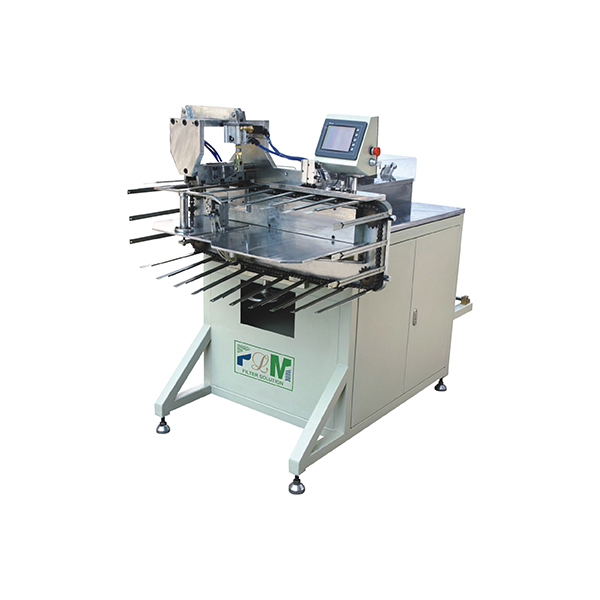
Application Scenarios Across Industries
The versatility of PP spun filter cartridges, produced efficiently by a modern pp spun filter cartridge making machine, makes them indispensable across a wide array of industrial and commercial applications requiring reliable depth filtration.
- Water Treatment: Critical for municipal water purification, industrial process water, and residential filtration systems. They serve as pre-filters to protect more sensitive filtration stages like RO membranes, ultrafiltration, and nanofiltration, extending the life of downstream equipment in reverse osmosis water filter machine and pure water treatment filter machine systems.
- Chemical Processing: Filtration of acids, alkalis, solvents, and various chemical solutions where chemical resistance of PP is highly valued. Ensuring purity in chemical synthesis and product formulation.
- Food & Beverage: Clarification of beverages (juice, beer, wine), pre-filtration for bottling water, and protection of food processing equipment. PP materials often meet FDA compliance for direct food contact.
- Pharmaceutical & Biotechnology: Pre-filtration of deionized water, culture media, and various reagents. While not typically sterile filters, they provide essential particle removal to protect expensive final filters.
- Oil & Gas: Filtration of process water, completion fluids, and other industrial liquids to remove suspended solids, protecting wellheads and refining equipment. In applications involving a sunflower seeds oil filter machine, these cartridges ensure the removal of fine particles, enhancing oil clarity and shelf life.
- Electronics & Semiconductor: High-purity water filtration to prevent contamination during manufacturing processes of sensitive electronic components.
- Air Filtration: While melt-blown technology is key for spun cartridges, the same principles are leveraged in air filter air filter making machine and compress air filter making machine systems to produce media for capturing airborne particulates, protecting industrial equipment and improving indoor air quality.
These diverse applications underscore the critical role of efficient and reliable PP spun filter cartridge production in maintaining operational integrity and product quality across countless industries.
Technical Advantages and Efficiency
Modern pp spun filter cartridge making machine systems are engineered to deliver significant technical advantages that translate directly into operational efficiencies and superior product quality for manufacturers.
- Gradient Density Structure: The ability to precisely control fiber diameter and density during the melt-blowing process allows for the creation of cartridges with a true gradient pore structure. This means larger particles are trapped on the outer layers, while finer particles are captured closer to the core. This design significantly increases dirt-holding capacity and extends filter service life compared to surface-only filters.
- High Filtration Efficiency: Through optimized fiber distribution and consistent thermo-bonding, these machines produce cartridges capable of retaining a high percentage of target particles at specified micron ratings, ensuring superior effluent quality.
- Low Pressure Drop: The uniform, self-bonded fiber matrix produced minimizes flow resistance, resulting in a low initial pressure drop across the filter. This reduces energy consumption for pumps and increases overall system efficiency.
- Material Purity and Chemical Resistance: Using 100% virgin PP ensures that the cartridges are free from binders, surfactants, or adhesives, which can leach into process fluids. PP's inherent chemical inertness makes these filters suitable for a wide range of aggressive chemicals, offering excellent corrosion resistance.
- Energy Efficiency: Advanced heating and cooling systems, coupled with efficient extruder designs and precise temperature control, significantly reduce energy consumption per kilogram of output. This aligns with global sustainability goals and offers substantial energy saving benefits.
- Automation and Stability: PLC-controlled systems with intuitive HMI interfaces provide stable operation, precise parameter adjustments, and real-time monitoring. This reduces labor costs, minimizes material waste, and ensures consistent product quality batch after batch.
- Versatility: A single machine can often be configured to produce cartridges of varying lengths, diameters, and micron ratings, offering flexibility to meet diverse market demands without needing multiple specialized machines.
These advantages position manufacturers using advanced pp spun filter cartridge making machine technology at the forefront of the filtration industry, enabling them to deliver high-quality, cost-effective solutions.
Vendor Comparison for Filter Cartridge Making Machines
Selecting the right vendor for a pp spun filter cartridge making machine is a critical strategic decision that impacts long-term operational efficiency, product quality, and return on investment. A thorough comparison involves assessing not just the initial cost, but also machine technology, after-sales support, and reputation.
Product Comparison Table: Key Vendor Considerations
| Feature/Vendor Aspect | Vendor A (Premium) | Vendor B (Mid-Range) | Vendor C (Economy) |
|---|---|---|---|
| Automation Level | Full-auto with integrated PLC, IoT connectivity, predictive maintenance. | Semi-auto with PLC, manual adjustments, basic fault detection. | Manual/basic control, limited automation. |
| Production Capacity (10" pcs/hr) | 600-1000+ | 300-600 | 100-300 |
| Energy Efficiency | High (optimized heating, motor, air flow) | Medium (standard components) | Basic (higher consumption) |
| Component Quality | International brands (Siemens, ABB, Festo), precision CNC. | Reputable domestic/regional brands. | Standard market components. |
| Customization Options | Extensive (multi-line, specialized lengths/ODs, material handling). | Moderate (some length/OD changes). | Limited (standard models only). |
| After-Sales Support & Warranty | Global network, 24/7 tech support, 2-year warranty, fast parts. | Regional support, standard business hours, 1-year warranty. | Limited support, basic warranty. |
| Certifications | ISO 9001, CE, TUV, etc. | ISO 9001, CE. | Basic compliance. |
Companies seeking a competitive edge in filtration manufacturing, perhaps to complement a paper folding machine for air filter production or expand into liquid filtration, should prioritize vendors that offer robust support, proven technology, and a track record of reliability. Evaluating long-term total cost of ownership (TCO) over initial purchase price is crucial for B2B decision-makers.
Customized Solutions for Specific Needs
In the specialized field of industrial filtration, off-the-shelf solutions often fall short of meeting unique operational demands. Leading manufacturers of the pp spun filter cartridge making machine recognize this and offer extensive customization options to ensure optimal alignment with client-specific requirements.
- Production Capacity Scalability: From single-line setups for emerging businesses to multi-line, high-volume production systems for large enterprises, machines can be scaled to match required output. This includes options for various spindle counts (e.g., 1-4 spindles per line, or multiple lines operating concurrently).
- Filter Dimension Flexibility: Customization extends to producing cartridges with non-standard lengths (e.g., 2.5", 7.5", or extended 60"+ lengths) and outer diameters, as well as specialized inner diameters or core configurations to fit proprietary filter housings.
- Micron Rating Precision: While standard machines offer a range, specific micron ratings (e.g., 0.1µm, 0.7µm, 25µm absolute) can be fine-tuned through adjustments to the die head, air flow, and winding parameters.
- Integrated Automation & Material Handling: Options include automatic raw material feeding systems, integrated cartridge cutting and conveying systems, automatic end-cap attaching machines (like the PLJT-250-25 model), and automated packaging solutions. These integrations streamline the entire production line.
- Control System Sophistication: PLC/HMI systems can be customized with advanced features such as remote monitoring, data logging for quality control and predictive maintenance, multi-language support, and integration with existing factory MES/ERP systems.
- Specialized Material Compatibility: While PP is standard, some machines can be adapted for other melt-processable polymers if required for unique chemical or temperature applications.
Working with experienced technical copywriters and engineering teams, clients can define their specific needs, ensuring the customized pp spun filter cartridge making machine delivers maximum operational efficiency and product quality tailored to their market demands. This level of partnership is critical for companies with specialized requirements, such as those manufacturing components for a professional air filter making machine, where precision and material integrity are paramount.
Application Case Studies and Customer Experience
Real-world application case studies provide tangible evidence of the performance and reliability of advanced filtration machinery. Here, we highlight exemplary instances where the deployment of a high-quality pp spun filter cartridge making machine has led to demonstrable operational improvements and customer satisfaction.
Case Study 1: Municipal Water Treatment Plant Upgrade
A large municipal water treatment facility in Southeast Asia faced challenges with inconsistent pre-filtration for its reverse osmosis (RO) system. Existing cartridges had low dirt-holding capacity, leading to frequent change-outs and high operational costs. After installing a high-capacity, automated pp spun filter cartridge making machine for in-house production, they achieved:
- 35% Reduction in Filter Replacement Costs: By optimizing cartridge design and material usage.
- 20% Extension of RO Membrane Lifespan: Due to superior and consistent pre-filtration quality.
- 15% Improvement in Operational Uptime: Fewer unscheduled downtimes for filter changes.
The plant manager reported: "The ability to control our filter production internally has not only slashed our procurement costs but also significantly enhanced the reliability and efficiency of our entire pure water treatment system. The machine's stability and consistent output are truly impressive."
Case Study 2: Industrial Chemical Manufacturer
A European chemical producer required extremely specific and consistent filtration for a new line of specialty solvents. Their previous supplier struggled to meet the tight tolerance on micron ratings and often had long lead times. Implementing a customized pp spun filter cartridge making machine with advanced PLC control allowed them to:
- Achieve ±0.5µm Consistency: Meeting their stringent product purity standards.
- Reduce Lead Times by 80%: Producing cartridges on-demand.
- Eliminate Supply Chain Risks: Gaining full control over critical component production.
"The flexibility and precision offered by our new spun filter machine have been game-changing," stated their Head of Production. "We can now confidently scale production and introduce new products without worrying about filtration bottlenecks. The robust construction and minimal maintenance requirements have also been a major plus." This also demonstrates the importance of reliable internal manufacturing when working with sensitive materials, similar to how precision is vital in a 2014 - car air filter making machine for automotive specifications.
Trustworthiness: FAQ, Lead Time, Warranty & Support
Establishing trust with B2B clients requires transparency and robust post-purchase commitments. This section addresses common inquiries and outlines the support infrastructure for our advanced pp spun filter cartridge making machine solutions.
Frequently Asked Questions (FAQ)
- Q1: What raw materials are suitable for your PP spun filter cartridge making machine?
- A1: Our machines are designed to primarily use 100% virgin polypropylene (PP) granules. We recommend specific grades that ensure optimal melt flow index and purity for high-quality cartridge production.
- Q2: Can the machine produce different cartridge lengths and diameters?
- A2: Yes, our machines are highly versatile. You can easily adjust settings to produce filter cartridges from 10 inches to 50 inches in length, and outer diameters typically ranging from 40mm to 120mm. Custom mandates can be provided for specialized dimensions.
- Q3: What are the power requirements for installation?
- A3: The typical operating voltage is 380V/50Hz/3-Phase. Total power consumption varies based on the machine's configuration and capacity, generally ranging from 25kW to 60kW. We offer customization for different regional power standards.
- Q4: What kind of quality control features are integrated into the machine?
- A4: Our machines incorporate advanced PLC controls and precision sensors for real-time monitoring of temperature, pressure, and winding parameters. This ensures consistent fiber diameter, density, and overall cartridge quality, adhering to standards like ISO 9001. We can integrate online thickness and weight measurement systems for further QC.
Lead Time and Fulfillment
Standard models of the pp spun filter cartridge making machine typically have a lead time of 4-8 weeks from order confirmation to shipment, depending on current production schedules. Customized configurations or multi-line systems may require 10-14 weeks to account for design, component sourcing, and rigorous testing. We work closely with clients to provide accurate timelines and regular updates throughout the manufacturing process.
Warranty Commitments
We stand behind the quality and performance of our machinery. Each pp spun filter cartridge making machine comes with a comprehensive 12 to 24-month warranty (depending on the model and contract terms) covering manufacturing defects and major component failures. This warranty period begins from the date of successful installation and commissioning. Specific details regarding coverage and exclusions are provided in the sales agreement.
Customer Support and After-Sales Service
Our commitment to our clients extends far beyond the sale. We provide extensive after-sales support to ensure seamless operation and longevity of your investment:
- Installation & Commissioning: Experienced engineers are available for on-site installation, setup, and performance testing globally.
- Operator Training: Comprehensive training programs for your technical staff on machine operation, maintenance, and basic troubleshooting, both on-site and remotely.
- Technical Support: Dedicated 24/7 online and phone technical support for immediate assistance with operational queries or minor issues.
- Spare Parts Supply: A readily available inventory of genuine spare parts to minimize downtime. Critical components can be expedited for urgent requirements.
- Preventative Maintenance & Upgrades: Scheduled maintenance services and recommendations for software/hardware upgrades to keep your machine performing at its peak.
Our global network of service professionals ensures that you receive prompt and effective support, safeguarding your production efficiency and protecting your investment.
References
- "Melt-Blown Nonwovens: Process, Structure and Property Relationships," Journal of Engineered Fibers and Fabrics, Vol. 5, Issue 2, 2010.
- "Advanced Filtration Technologies for Industrial Water Treatment," Water Research Foundation Report, 2018.
- "Polypropylene in Filtration: A Review of Material Properties and Applications," Filtration Journal, Vol. 16, Issue 3, 2016.
- ISO 9001:2015 Quality Management Systems – Requirements. International Organization for Standardization.
- "Global Filter Cartridge Market: Trends, Forecast and Competitive Analysis," Lucintel, Market Report, 2023.
active carbon air filter for air purifier – Odor/VOC Control
NewsNov.17,2025Replacement Dyson Carbon HEPA Air Filter – High Efficiency
NewsNov.17,2025Active Carbon Air Filter for Air Purifier | High Adsorption
NewsNov.17,2025Active Carbon Air Filter for Air Purifier | Odor & VOC Control
NewsNov.17,2025Active Carbon Air Filter for Air Purifier | Odor & VOC
NewsNov.17,2025Sintered Porous Metal Filter Tube Cup | 5 Micron, SS316L
NewsNov.11,2025

